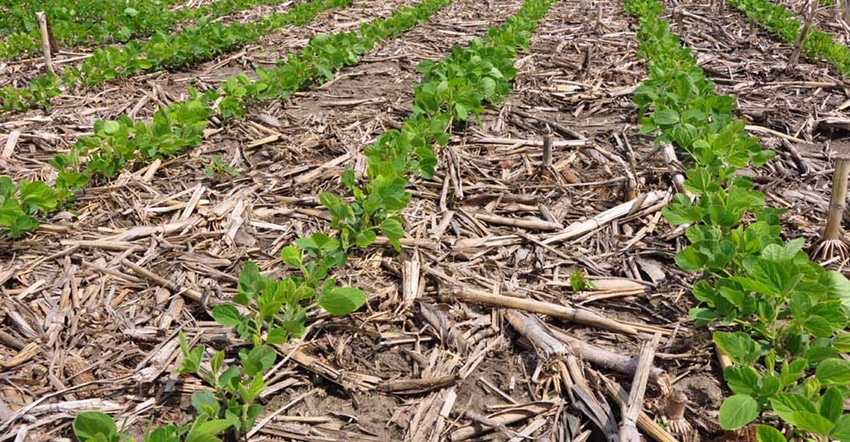January 2, 2018

We’re looking at switching to no-till or strip till sometime in the next few years. We farm in Minnesota where the soils don’t warm up that fast. We’re not really sure what to do next as we think about this move. Thoughts? — S.K., Minnesota
On the positive side, you’ll see cost savings from reduced tillage (lower equipment and fuel expenses) being greater than any increased expenses (extra chemicals) and lost revenue from reduced yields. The bad news is that the yield impact component of this formula is difficult to get right, given Mother Nature’s tendency to not deal an average hand each time.
This isn’t an area you want to be a trendsetter for the sake of saving costs. Reduced tillage programs aren’t novel or new, right? They’re probably not an intuitive way of reducing costs, as they are already being implemented in several areas of the country. Consequently, minimum-tillage practices are either common or uncommon locally — for a reason, and likely a good one.
If already common in your area, you’re likely on the tail end of converting due to an agronomic reason you’ve witnessed or believe is best for your farm. If minimum tillage is uncommon in your area, you’ve likely not gone that direction yet for risk management reasons.
It’s OK to buck the trend, and we know several cases where an entire area simply lacked the progressive mentality to make improvements. Seek the budget and yield trial data you need to put the best numbers into a net benefit formula. Don’t be afraid to create your own on-farm trial for a year or two. Assuming your farms are A and B sloped, strip till can be a much lower production risk than no-till. Strip-tilling into cover crops is becoming increasingly popular in the Midwest, thanks to extremely accurate guidance systems.
Jerry and Jason Moss operate Moss Family Farms Inc. [email protected]
About the Author(s)
You May Also Like




